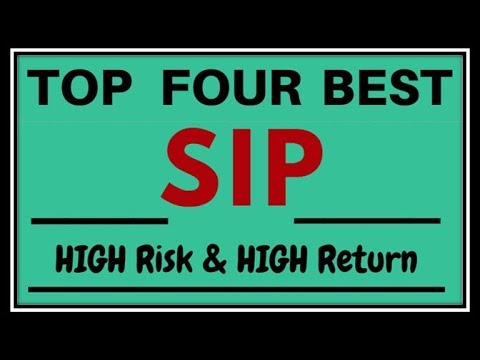What is monopoly? Definition, Features, Types, Price-output determination
Contents
At its peak in the late 1800s, Standard Oil controlled more than 90 percent of oil production in the United States. It wasn’t a pure monopoly, since other competitors existed, but it owned enough of the market to control prices almost completely. A monopoly is a market situation whereby a single firm/producer or seller is in charge of the production and distribution of a commodity in the market.
The law forbids the potential competitors to imitate the design and form of products registered under the given brand names, patent or trade-marks. This is done to safeguard the interests of those who have done much research and undertaken risks of innovating a particular product. The product produced by the monopolist has no close substitutes. The commodity dealt https://1investing.in/ in should have no closely competition substitutes. That is, there should be no other firm or firms producing similar products, otherwise there will be competition. Imperfect Monopoly – The monopolist controls the entire market supply for its product as there is no close substitute, but there is a remote substitute for the product available in the market.

Discriminating monopolies in a way can reduce inequalities in the sense that they can charge higher prices to the rich than they charge to the poor. This emerges when a government decides to nationalize certain industries in the public sector. In other words, the creation of this form of monopoly takes place through statutory measures.
Labour Exploitation under Monopoly:
Since the monopoly is the only seller in the market, it has neither rivals nor direct competitors. For example, you get your electricity supply from one agency, that is. State Electricity Board; you travel by railway train owned and run by government of India. In monopoly, there is no distinction between firm and industry. The firm is the industry since it is the only producer in the market.

The Company traded in basic commodities, which included cotton, silk, indigo dye, salt, saltpetre, tea and opium. Dutch East India Company was created as a legal trading monopoly in 1602. The Vereenigde Oost-Indische Compagnie enjoyed huge profits from its spice monopoly through most of the 17th century. Vending of common salt was historically a natural monopoly.
What is Monopoly? Definition and Meaning of Monopoly
Natural Monopoly – A natural monopolist enjoys or benefits from natural factors like locational advantages, locational reputation, natural talents and skill sets of the producers, etc. Public Monopoly – A public monopoly is one that is owned by the government. These monopolies are set up for the welfare meaning of monopoly in economics of the masses. Price maker – A monopolist has the power to charge any price for its product of service. It does not produce necessity goods and it does not force consumers to use its products or the App Store. A market situation where it is most efficient for one business to make the product.
- In an imperfect monopoly, a firm produces a product, with the presence of close substitutes in the market.
- In this case, the monopolist becomes less innovative and less enterprising.
- This happens especially if these authorities conclude that these companies violate anti-monopoly laws or eliminate consumer choice.
Besides his extensive derivative trading expertise, Adam is an expert in economics and behavioral finance. Adam received his master’s in economics from The New School for Social Research and his Ph.D. from the University of Wisconsin-Madison in sociology. He is a CFA charterholder as well as holding FINRA Series 7, 55 & 63 licenses. He currently researches and teaches economic sociology and the social studies of finance at the Hebrew University in Jerusalem. Less employment in the economy, as higher prices lead to lower output and les need to employ labour.
A monopoly is an economic market structure where one company or one seller dominates with many buyers. There is a unique product in this market, and a seller enjoys the power of deciding the price of goods as he does not have competitors for that particular product. A pure monopoly is defined as a single seller of a product, i.e. 100% of market share. The absence of competition in a monopolistic market can amount to the production of inferior goods/low quality. They usually do this to save their costs of production just to generate more profits at the expense of the consumers. In economics, you can never say never, but generally speaking, monopolies aren’t good for competition, so they aren’t good for consumers.
Classifying customers
A discriminating monopoly does not operate in a single market, it operates in more than one market. Try to think of some examples of a monopoly in today’s economy. Any firm can set their own prices, but most of the time, if those prices are too high, consumers don’t pay them and the firm either has to lower prices or shut down. In a monopoly, consumers just have to pay whatever the controlling firm wants, since they are basically the only game in town. “Monopoly is a market situation in which there is a single seller, there are no close substitutes for commodity it produces, there are barriers to entry.” Monopoly firm which controls all the supply of products as well as related things such forms of market structure is called a pure monopoly.
Therefore, for natural monopolies and industries with significant economies of scale, monopolies can be more efficient. If the commodity is produced under the Law of Increasing Returns, the monopolist may be producing more at lower costs and selling at lower prices. This policy may help him to earn higher total revenue. The consumer may also buy larger output at lower prices. As a firm that is dominant in the industry, it can charge high prices for its commodity with the motive of increasing profit. The monopolistic price is usually higher than a competitive market.
However, there are other imperfect markets other than monopoly market like oligopoly market which is studied next in detail. Microsoft operating systems own 90-95% of the microcomputer computer operating systems market across the globe. Its operating system becomes a basic need in home and business computers. Plus, the substitutes of the operations system are not even close to Microsoft’s case.
This will in turn make him become the sole supplier of a commodity. An imperfect monopoly refers to a limited degree of monopolistic power. Though a single firm produces a commodity that has no close substitutes, the degree of monopoly is less than perfect. This usually relates to the availability of the closeness of a substitute. In practice, many cases of such imperfect monopolies exist.
Telkom is a semi-privatised, part state-owned South African telecommunications company. Deutsche Telekom is a former state monopoly, still partially state owned. Deutsche Telekom currently monopolizes high-speed VDSL broadband network. The Long Island Power Authority provided electric service to over 1.1 million customers in Nassau and Suffolk counties of New York, and the Rockaway Peninsula in Queens.
Such businesses can charge higher prices than other sellers in other localities. This seller knows that people will still buy from him as they would incur higher costs if they travel to other places to purchase the commodity. Alternately, a company can be granted authorization from the government to provide goods and services or use intellectual property rights to be a monopoly.

The effect that the practice has is that it is bound to temporarily allow a single producer to carry out its operation on a lower cost curve than other producers. Also, they can concentrate wealth, power, and influence in the hands of a single or few individuals. On the other hand, the government can enforce and encourage monopolies of certain essential services such as utilities for certain reasons. Also, a company can gain or maintain a monopoly power or position through unfair practices that suppress competition thereby denying consumers of their choice. In other words, when a company dominates a business sector or an industry, it can use that monopoly power to its own advantage at the expense of its consumers. A pure monopoly is a single seller in a market or sector with high barriers to entry such as significant startup costs whose product has no substitutes.
Business Economics MCQ Questions and Answers Part – 2
This aspect makes Microsoft a monopoly in the software industry. It represents the biggest difference between capitalism and socialism, set up with capitalism encouraging a monopoly. However, it can act as a power incentive for businesses and must not be completely curtailed, just regulated. Evidently, the advantages of a monopoly system only applies to the business in monopoly. In cases of government enforced monopoly, it also helps to ensure quality control of the goods sold. Antitrust cases can be prosecuted by state or federal governments.
The boundaries of what constitutes a market and what does not are relevant distinctions to make in economic analysis. In a general equilibrium context, a good is a specific concept including geographical and time-related characteristics. Most studies of market structure relax a little their definition of a good, allowing for more flexibility in the identification of substitute goods. Iii) Oligopoly, the structure of a market where there are a few sellers of a product, but they do not have the pricing policy like the monopoly market. The individual control of the market in a monopoly market structure is due to the following sources of power.
